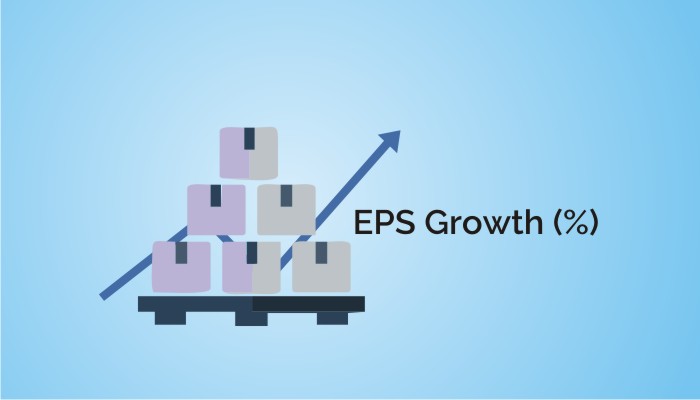Why Home Care Software is Necessary

Technology has made our lives easier in countless ways. From the way we communicate to how we navigate our daily tasks, technology has revolutionized every aspect of life. We can now use smartphones and tablets to access information at any time, from anywhere. We have apps that help us stay organized and track progress on goals, projects, and more. All of this is provided by advanced software solutions designed specifically for the modern world’s needs.
The internet provides us with an incredible amount of data in real-time which allows us to make informed decisions quickly without having to wait for traditional sources like books or newspapers which may take days or even weeks before they are available again after being updated or replaced with a new edition altogether.
This gives businesses a competitive edge as well as individuals who need instant answers for their day-to-day problems; whether it’s finding directions home from work or researching medical symptoms online instantly instead going through lengthy appointment processes first.
This same technology has also enabled great advancements in how we care for elderly family members and those with special needs who may require extra attention from caregivers outside of their regular medical team.
Software for homecare is designed specifically for this purpose, providing an efficient way of tracking activities, appointments, and medications as well as scheduling visits from healthcare professionals such as nurses or physical therapists when needed. Let’s examine why home care software is necessary and how it helps simplify life both for caregivers and those receiving assistance alike throughout the rest of this article
What Does Home Care Software Do?
Home care software is a specialized type of software designed to help manage the daily activities, appointments, and medications of those requiring extra attention from caregivers. It streamlines many aspects of home care including scheduling visits from healthcare professionals such as nurses or physical therapists when needed and tracking progress on goals or medical treatments over time.
Home care software typically includes the following features:
- Scheduling
- Allows for easy appointment scheduling with healthcare providers as well as setting reminders for tasks such as medication times or doctor’s visits.
- Care Plan Management
- Tracks patient progress against individualized plans set up by their physicians in order to ensure treatment success.
- Data Collection
- Collects vital health data like blood pressure readings, pulse oximetry, weight measurements, etc., which can be monitored remotely by caregivers if they are unable to physically attend every visit with their loved one/patient
- Medication Management
- Keeps track of all prescribed medications along with dosage instructions ensuring that patients take them at the right time each day without any confusion which could lead to dangerous mistakes in dosages being taken
- Communication
- Facilitates communication between family members and other involved parties allowing everyone involved in caring for a person’s needs to stay informed and updated on their condition
- Reporting
- Generates reports based on collected data which can then be used to assess current treatments and plan future ones as needed.
Home care software is essential for providing the best possible care for those in need. It simplifies tasks that would otherwise take up a large amount of time, allowing caregivers to focus more on spending quality time with their loved ones or patients rather than worrying about every detail of their care.

This software also allows for better communication between everyone involved in the home care process which helps to ensure that everyone is on the same page when it comes to decisions related to treatment and medications. Having all of this data available at a moment’s notice can also be invaluable when it comes to making quick decisions in an emergency situation.
Home care software is becoming increasingly popular as more and more families recognize the benefits that this type of technology provides in terms of better care for loved ones and peace of mind for caregivers. With its ability to streamline tasks, provide detailed data, facilitate communication between all parties involved, and generate reports – home care software has become a necessity rather than just a convenience.
Is Home Care Software Right for You?
Home care software can be a great asset when it comes to providing the best possible care for those in need. It simplifies many tasks that would otherwise require a lot of time and effort, freeing up caregivers to spend more quality time with their loved ones or patients instead. But is home care software right for you?
There are several reasons why getting home care software might be a good idea:
- Saves Time
- Automates mundane tasks such as medication reminders, appointment scheduling, and data collection allowing you to free up your schedule so you can focus on other important activities like spending quality time with your loved one/patient
- Better Care
- Provides detailed information about treatments, medications, and appointments making it easier to ensure that all aspects of the patient’s health are being managed optimally
- Improved Communication
- Allows everyone involved in caring for someone’s needs (family members included) to stay informed thereby facilitating better communication between all parties
- Increased Safety
- By monitoring vital statistics remotely caregivers will know immediately if something is wrong which could ultimately save lives
- Convenient Accessibility
- Homecare professionals will have access from anywhere meaning they won’t need to travel back and forth from an office every day
While home care software can be incredibly beneficial in many ways, it is important to consider all aspects of the technology before making a decision. It is always best to do your research and weigh out the pros and cons before investing in any kind of software solution.
In fact, many people actually have a lot of concerns when it comes to this kind of software. For example:
- Privacy
- How secure is the data that is being collected and shared?
- Cost
- Does getting home care software fit into your budget or will it add an additional financial burden?
- Reliability
- Is the software up to date with current industry standards and do you trust its accuracy in collecting data?
- Technical Knowledge Required
- Will someone need to be employed who understands how to use this type of technology on a daily basis, or can it be managed by existing staff members who understand basic computer programs?
- Compatibility Issues
- Are there any compatibility issues between different devices/software which could cause problems when attempting to access information remotely from multiple locations at once?
Home care software has many advantages but also comes with some risks. It’s important for those considering investing in this type of technology to weigh all options carefully before making a decision.
Ultimately, however, if used properly home care software can provide invaluable assistance in providing quality healthcare services while allowing more time for caregivers to spend quality time with their loved ones instead worrying about mundane tasks.
Looking for a Good Piece of Software
If you’ve decided that this kind of software would make your life better, then you’ll most likely want to know where to look for a good piece of home care software. While there are many options available, the key to finding the right one for you is researching and comparing different solutions in detail so you can make an informed decision based on your own needs and circumstances.
First off, it’s important to get a clear understanding of what type of features you need from your home care software solution as this will help narrow down the list considerably. Do some research online or talk with other people who use similar products so that you can understand what is out there and determine which features fit best for your situation.
Additionally, if possible try out any potential solutions before making a purchase as this will give more insight into how easy/difficult they are to use in practice rather than just by description alone
Price should also be taken into consideration when looking at different pieces of software but remember that expensive does not always equate to quality; sometimes cheaper alternatives may actually offer all the same functions without costing too much extra money – it’s worth doing some comparison shopping here!
Also, consider any additional fees such as maintenance costs or setup fees which could add up significantly over time if not planned ahead properly – these should be factored into any decision-making process regarding budgeting.
Getting in Touch With the Future
Technology is constantly evolving and improving with each passing day. While this can be beneficial in many ways, it also means that software solutions need to keep up or risk becoming obsolete sooner rather than later.
Home care software is no exception; new features, tools, and updates are released on a regular basis as technology advances allowing for more efficient use of the product while providing better overall results for caregivers and patients alike.
When looking at different home care software options make sure to ask what kind of support they offer in terms of staying up-to-date with current industry standards so you won’t have to worry about your solution becoming outdated quickly – some companies may even offer free upgrades when available which can obviously save a lot of money over time!






